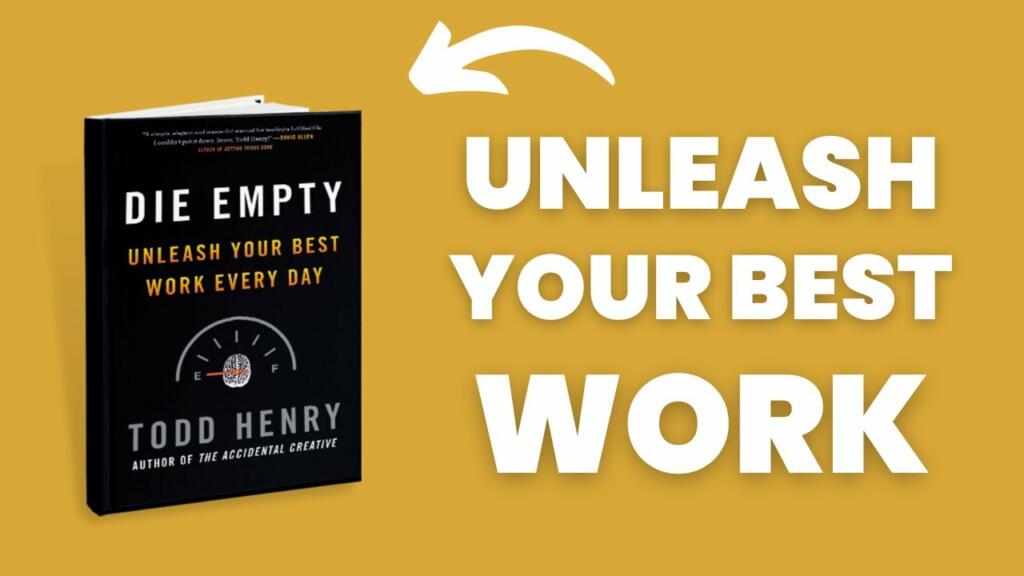Die Empty Book: TOP 10 Lessons for Living a Purposeful Life
Die Empty, a book by Todd Henry, is a powerful guide to help individuals live a purposeful and fulfilling life. The book provides valuable insights and actionable strategies to help readers overcome fear, embrace creativity, and unlock their true potential. In this article, we will explore 10 lessons from Die Empty book that can help individuals live a life of purpose and meaning.
TOP 10 lessons to learn from Die Empty Book
“Die Empty” is a thought-provoking book that inspires readers to make the most of their lives. Its 10 lessons are a must-read for those seeking purpose and fulfillment.
We all have something we want to do. He says that consistent practice can help us do our best work everyday, so in the end we don’t regret how we spent our life.
To urge you to empty yourself of all the creativity hidden inside you. He says rely on sustained effort, not accident. The effort will be worthwhile.
People often regret not living their lives with purpose, he explains, explaining the purpose of his book: to bring a new clarity and sense of urgency to how you approach your work on a daily basis.
A ‘sense of urgency’ can be misconstrued as a mindset to get things done immediately at all costs. Never neglect everything else in your life just to get the job done.
Don’t act frantic, repeating a point he mentions several times in the book: Make steady, significant progress. Dying empty is not the same as living ‘like there is no tomorrow’.
Your days are limited, that you have the potential to contribute to the world, and that you can’t work with great expectations in return for what you do.
Remembering that I will be dead soon has been one of the most important tools I have found to help me make it big. Choices in life. That should help you choose the work you do.
Also Read: TOP 10 Key Lessons to learn from Miracle Morning Book [Updated]
Too many people suffer from ‘objective paralysis’, the fear of getting things wrong, and – here’s something Mr. Henry says beautifully – they become frustrated when ‘the daily grind of work doesn’t reward the pursuit’ .
He describes three types of work, explaining how most of us always focus on two and ignore one of them: mapping, meshing, and making.
He explain how the work we do can affect people and contribute in ways we can’t always imagine or expect.
Install our app for more news and daily updates: @tfiglobal
